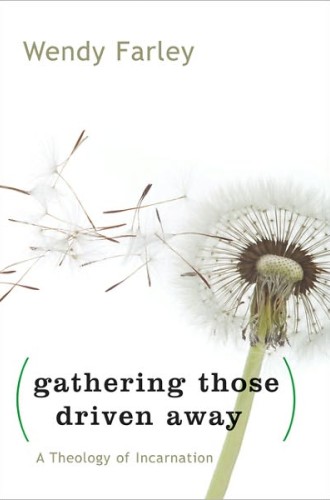Gathering Those Driven Away, by Wendy Farley
A few friends gather on Christmas Eve, sharing the joy of the season. Women tell stories that reveal the depths of pain and love in ordinary life. One improvises on the piano. They agree that mothers, like Mary, recognize the divine in their children. Men "pontificate" until Joseph enters the dialogue. He observes that "the subject of Christmas claims" creates a "speechless joy," soothes deep pain, gladdens the heart and eye; it was "one long affectionate kiss given to the world." The evening ends with all united in song.
This is the scene of Friedrich Schleiermacher's Christmas Eve: Dialogue on the Incarnation. It is also the setting of Wendy Farley's preface to Gathering Those Driven Away. In the spirit of Schleiermacher's Dialogue, she offers meditations, songs and spiritual practices—all rooted in the pain and joy of ordinary life. She formulates a theology of Wisdom incarnate—unleashed by divine desire, found in sublime moments and ragged places of ordinary life and born in a manger. In doing this, she gathers not merely the cultured despisers of Christianity, but "those driven away."
Farley's title comes from a paraphrase of Micah 4:6, "And in that day, says the Beloved, I will assemble the lame and gather those who have been driven away." In her book, "those driven away" first refers to casualties in the fight over sexual minorities in churches. Her premise is that the harm, betrayal and self-loathing caused in this "wreckage" reveals wounds of other times and places. But her focus is "the Beloved." The book is "mostly a long love letter to the Beloved, incarnate in the world, in Scripture, in Jesus, and in every human being." She offers words that "caress" the Divine and that intend to foster human participation in "divine eros and caritas for the world."




